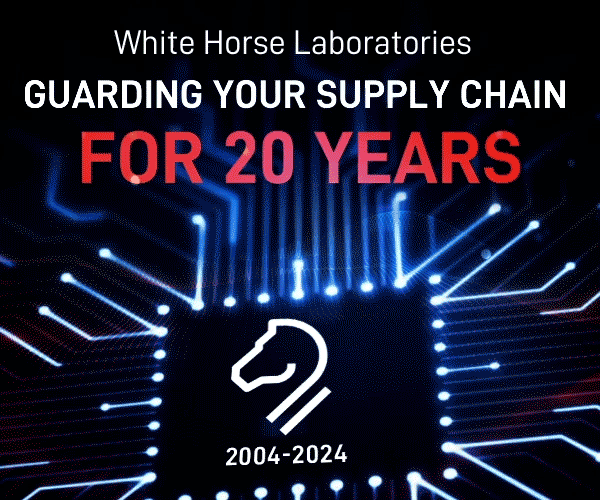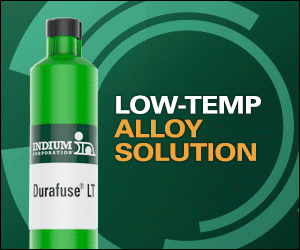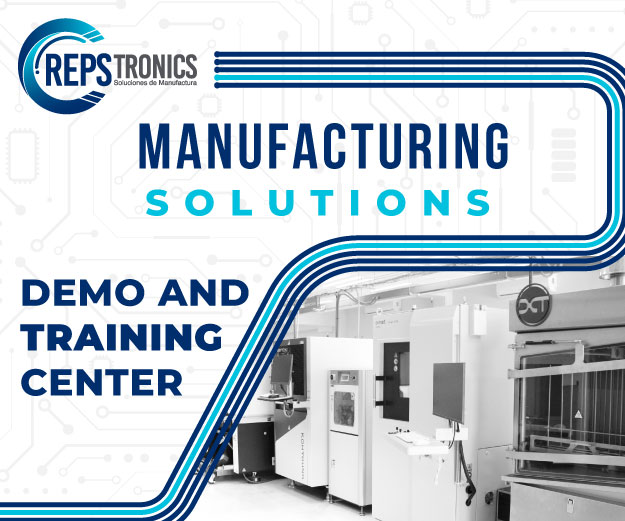COVID-19 and a Better Approach to PCB Cleaning
By Emily Peck, Microcare

Fortunately, the world is managing to adapt to COVID-19 and more PCB fabricators have reopened for business. And the aftermath could actually have a positive longer-term impact on these companies. More school, work and social events are taking place online. And even after the COVID-19 crisis passes, many of these might stay that way. Telemedicine and remote patient monitoring are also growing in scale. Demand for electronics including smartphones, tablets and patient monitoring devices could see a steady rise as the world adjusts to living online.
While this increased need for electronics can be seen as a relief for those companies and the skilled people they employ, they are now faced with the dilemma of how to continue to produce electronics components efficiently while keeping their workers and their customers safe.
Keeping Employees Safe
The electronics industry relies on its skilled workforce to produce high-quality, reliable PCBs in an efficient and profitable way. But with COVID-19 looming large, managers are challenged on how to keep their workers safe and healthy in the workspace.
Some PCB fabricators have manual PCB assembly and cleaning lines where workers typically stand close together. Usually much closer than the six feet or 3-meter social distancing standard set by global and local health organizations.
To accommodate the new rules, some fabrication shops are reconfiguring their production footprint. They are rearranging workstations and adding more distance between them. When this isn’t possible due to space constraints, some install clear plastic barriers to separate workers. This worker separation may require adding extra PCB cleaning supplies and fluids to prevent workers from sharing them. Some companies also post signs and floor markers reminding workers to maintain their social distancing.
Other companies address the density problem by scheduling employees on staggered shifts. Or they add extra shifts to prevent all employees being on the floor at the same time. This not only helps prevent the spread of the virus, but is good contingency planning. Especially if one shift is impacted by the virus and needs to shut down. There is a separate virus-free shift of workers ready and able to continue on with production.
For additional caution, many PCB fabricators provide their employees with PPE. These include masks, shields and gloves. Importantly, they show workers how to properly wear the PPE including how to don and doff it correctly to avoid infection. Also, many promote good hand hygiene by requiring scheduled hand-washing breaks and providing hand sanitizer to all workers to help prevent the spread of the virus.
The Team Approach to Workplace Cleanliness
For most PCB fabricators, workplace cleanliness, if not already important, now jumps to the top of the priority list. Some companies are taking an ‘all-hands-on-deck’ approach to workplace sanitation. Every employee essentially becomes an extension of the custodial or maintenance team. They clean and disinfect their own workspace. Some companies have even gone so far as to implement mandatory ‘stop-and-clean’ breaks throughout the day. These cleaning sessions, typically done at the beginning and end of each shift and before or after breaks, helps limit any virus cross-contamination between workers.
Supplying workers with effective and easy-to-use cleaning supplies, like surface cleaning wipes, makes cleaning more convenient for them. According to health officials, the ideal surface cleaning wipe should contain 70% alcohol to kill the virus. The wipes should also be made of fabric to stand up to rough industrial work surfaces and rugged scrubbing. Also, a container with a tight-sealing lid helps prevent the wipes from drying out.
Some companies find this team work approach to cleaning gives employees more peace of mind. It shows them their employer is serious about their safety and it allows workers more control over how clean and sanitized their workstations stay.
Keeping Customers Safe
Some PCB makers now approach PCB cleanliness in two different ways. First, the PCBs must meet their customers’ cleanliness standards for performance and reliability. And second, the PCBs must be virus-free before shipping them. Airborne viruses can remain on PCBs after any human handling. PCBs with hand-placed, hand-soldered and hand-cleaned components have a higher risk of COVID-19 contamination than those produced with less human contact. For instance, those made using touch-free pick-and-place machines and wave soldering equipment may be less susceptible. Also, PCBs left sitting in storage due to production delays or rescheduled shipments may have airborne virus particles settle on them.
As a result, some PCB fabricators take the added precaution of decontaminating their finished PCBs. Usually, the quality and packaging department workers clean them before packaging. They typically use presaturated, 70% alcohol wipes designed specifically for electronics cleaning. Giving the PCBS a quick, final wipe removes any lingering contamination and helps reduce the chance of spreading the virus to customers.
Automated Cleaning as Social Distancing Tool
For PCB fabricators, protecting workers and customers during the COVID-19 outbreak is paramount. But they also need ways to manage health and safety without negatively impacting project timelines or throughput. Some are finding a solution through process automation. By automating the PCB cleaning process, they are able to social distance workers, produce clean, virus-free PCBs and still meet their necessary production requirements.
Vapor degreasing is a relatively common automated process that thoroughly cleans and dries PCBs before conformal coating or packaging. A single operator runs the entire automated batch cleaning process. This includes load-in, cleaning, and rinsing, to drying and load-out of the clean PCBs.
Batch cleaning PCBs with a vapor degreaser provides safer social distancing for workers by eliminating the close-quarter manual cleaning done by groups of workers at crowded manual cleaning stations. It provides exceptional cleaning but with a low human touch. Because vapor degreasing helps create a more flexible, socially-distanced workspace, managers usually don’t need to add extra shifts or create staggered work schedules.
And since the process is automated, vapor degreasing is easy to teach and learn. Managers can cross-train multiple vapor degreaser operators. This gives the ability to run multiple shifts if needed. Or it affords a staffing contingency in case of emergencies. It also provides manual- cleaning-only workers a valuable, sustainable work skill for the future.
The Benefit of Speed Cleaning
Vapor degreasing is a fast PCB cleaning process. One operator running the total vapor degreaser cleaning process, produces a batch of consistently clean PCBs, from start to finish, in about 6-20 minutes. It speeds up production throughput and allows fabricators to more easily meet demanding customer deadlines. Plus, only a portion of the operator’s time is necessary to oversee the cleaning cycle. This allows them to perform other tasks while the PCBs are cleaned, further improving production efficiencies.
The PCBs come out cleaned to IPC or other quality standards. And since the vapor degreaser uses non-water-based cleaning solvents, the PCBs are ultra-clean, cool, dry and ready for packaging right out of the machine. There is no extra drying step, speeding production further.
In addition, the chemical nature of the cleaning fluids is hostile to viruses and bacteria and do not allow them to grow. Therefore, PCB fabricators can opt to skip any disinfecting steps prior to packaging and shipping the PCBs to customers.
Prepare for the Future
As the electronics industry rebounds from COVID-19, many PCB fabricators are prioritizing worker safety and facility hygiene. But they are also looking more critically at their PCB cleaning methods and considering more automated methods. Vapor degreasing is an option that allows them to clean PCBs efficiently and effectively while also protecting the health and safety of their workers and customers. By switching to more automated cleaning methods, PCB fabricators can set themselves up for cleaning success during the pandemic and beyond.
Tips to Help Keep Workers Safe
Implement health screenings: Ask employees to take their temperatures and monitor the health of their families. If anyone shows signs of illness, this means they are not to report to work.
Limit visitors: Limit vendors and other outside visitors to your facility. Fewer visitors reduce the risk of contamination. When people do visit, be sure they are aware of your PPE protocol beforehand and clearly mark areas that are “off-limits”.
Limit interaction: Keep breakrooms closed and remove shared appliances like coffee makers, water coolers, refrigerators and microwaves. Some companies provide bottled water and boxed food to compensate.
Limit unnecessary encounters: Avoid in-person meetings. Use email, phone calls and online meetings, even when in the same building.
Plan for the worst: If someone at your company should become infected with COVID-19, have an action plan in place. Having a fast response for cleaning and sanitizing your facility will limit production schedule disruptions and downtime.
Implement health screenings: Ask employees to take their temperatures and monitor the health of their families. If anyone shows signs of illness, this means they are not to report to work.
Limit visitors: Limit vendors and other outside visitors to your facility. Fewer visitors reduce the risk of contamination. When people do visit, be sure they are aware of your PPE protocol beforehand and clearly mark areas that are “off-limits”.
Limit interaction: Keep breakrooms closed and remove shared appliances like coffee makers, water coolers, refrigerators and microwaves. Some companies provide bottled water and boxed food to compensate.
Limit unnecessary encounters: Avoid in-person meetings. Use email, phone calls and online meetings, even when in the same building.
Plan for the worst: If someone at your company should become infected with COVID-19, have an action plan in place. Having a fast response for cleaning and sanitizing your facility will limit production schedule disruptions and downtime.
Emily Peck is a Senior Chemist at MicroCare, LLC, which offers benchtop and vapor degreasing electronics cleaning solutions. She has been in the industry more than 6 years and holds a MS in Chemistry from Tufts University. Peck researches, develops and tests cleaning-related products that are used on a daily basis in electronics, medical and precision cleaning applications. For more information, visit www.microcare.com.











